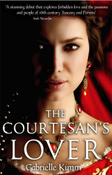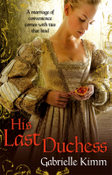
by Gabrielle Kimm
The debate rumbles on: are creative writing courses worth it? Is ‘creative writing’ in fact something that can ever be ‘taught’? Are the available courses worth the money? I have to admit to having very strong personal opinions on the issue – read on to find out more.
Even the most cursory flick through a Googled list of sites on the subject throws up a wide variety of opinion – Guardian journalist, Matthew Wright quotes Blake Morrison in a 2007 article suggesting that writers embarking on these courses are seeking ‘the kind of editorial help they no longer hope to get from publishing houses’ (that may be the case for some people, but for myself, I’d have to disagree, as my experience with my own publisher, Sphere, has been one of exemplary editorial input). In the same article, Wright quotes writing course director Clare Morgan as saying that ‘the romantic notion of the single artist struggling … in a garret has been eroded’, being replaced by ‘the increasing acceptability of the notion of writing as a craft, the skills of which one can develop through apprenticeship’. Yeah – I like that idea. Charlotte Higgins, however, in an article from 2008, describes ‘the celebrated novelist, screenwriter and playwright Hanif Kureishi’ as launching a ‘withering attack on university creative writing courses, calling them ‘the new mental hospitals.’ Oxford-based author Emma Lee-Potter’s excellent recent post explores the subject. She quotes creative writing tutor Richard Francis as saying ‘You may not be able to teach people to write, but you can take people who are capable of writing and provide them with the space and structure within which they have to write.’ This expresses it nicely – though speaking personally, I think there is more to it even than that.
 I did my MA course at the University of Chichester between 2005 and 2007. At this point I was already fiercely ambitious for my writing. I had completed the first draft of His Last Duchess, and had written a fair bit of what would eventually become The Courtesan’s Lover, though hadn’t yet submitted anything to agents or publishers. I was writing in every available minute (even if, as a working teacher and mother of two, there weren’t nearly enough of those…), but I was also seriously struggling with guilt, at the amount of time and energy I was devoting to what to other people was still tantamount to a hobby.
I did my MA course at the University of Chichester between 2005 and 2007. At this point I was already fiercely ambitious for my writing. I had completed the first draft of His Last Duchess, and had written a fair bit of what would eventually become The Courtesan’s Lover, though hadn’t yet submitted anything to agents or publishers. I was writing in every available minute (even if, as a working teacher and mother of two, there weren’t nearly enough of those…), but I was also seriously struggling with guilt, at the amount of time and energy I was devoting to what to other people was still tantamount to a hobby.
Doing the MA changed all that.
The Chichester University MA course is run by Stephanie Norgate, an inspirational poet and playwright, who is both a wonderful teacher and a fierce champion of all the students on her course. She has no doubts about the practical benefits of doing a Creative Writing MA. She says, ‘Over the fifteen years of running the MA in Creative Writing at Chichester with an outstanding team of tutors who are all practising writers, I have been delighted to see an increase in the number of our students who publish.’ Just have a look at the list of Chichester student successes (I feel very proud to be one of them) – it speaks for itself.
playwright, who is both a wonderful teacher and a fierce champion of all the students on her course. She has no doubts about the practical benefits of doing a Creative Writing MA. She says, ‘Over the fifteen years of running the MA in Creative Writing at Chichester with an outstanding team of tutors who are all practising writers, I have been delighted to see an increase in the number of our students who publish.’ Just have a look at the list of Chichester student successes (I feel very proud to be one of them) – it speaks for itself.
Stephanie works alongside a staff of equally inspirational practising writers – poets, playwrights, short fiction writers and novelists. It’s not just that these writers help students to improve their skills, (which they undoubtedly do, consistently) it’s also that, as Stephanie explains, they understand ‘the mysterious side of writing, that strange opening of the unconscious where the writer almost becomes a channel for the work. That side of things is difficult to teach but, as Stanislavsky says, a state of preparedness aids the mysterious processes.’ And ‘that side of things’ is perhaps the most difficult to access if you are working alone, writing with no guidance. I suppose it’s not impossible, but being with other writers, other people who understand, other people who are more experienced, allows that channel to open and flourish in a way I think would be very hard to achieve in isolation.
For me, the first thing I discovered on starting the MA course was a sense of validation – while I was on the course, I could really begin to think of myself as a writer. The structure of the modules provided me with a focused journey – at last, it was OK to be as obsessed with it all as I was (and still am!). The teaching was inspirational – and it was such a relief to be in the company of other people who were as determined to write, and as interested in the process, as I was. Up until then, I hadn’t met any other writers and starting this course was rather like being a kid who has been standing outside of a well-stocked toyshop with her nose pressed against the window, looking longingly at all of the unreachable displays, and suddenly being told to come in and help herself.
What was so great about it? It’s difficult to pick out individual elements – learning to share work-in-progress with tutors and other students through the workshop system was revelatory (and a vitally important working practice), but, as Stephanie Norgate explains, ‘It’s not all about workshopping, though that is often the most appreciated element by students. Our writing exercises and inspiring discussions of reading which focus on narrative possibilities, the building of character, story, subtext, imagery, undercurrents and so on, raise the bar for the work submitted in workshops.’
I think it’s fair to say that I don’t think I’d have been published had I not done the MA. Not only because I was taken on by an agent whom I met through a University-organised publishing panel (though that helped, of course!) but also because of what I learned, and how much better a writer I was when I left than when I arrived.
So, as Emma Lee-Potter says, ‘if you’re an aspiring author who’s thinking of doing a creative writing course my advice is: ignore the cynics and get that application form off in double-quick time.’ I couldn’t have put it better myself.
*
This post first appeared on the author’s website, 1st September 2011.


Hi Gabrielle. I teach Creative Writing at the University of Bedfordshire, where we teach at undergraduate level, and at Masters by Research level.
I think that what was said about courses giving students the space and time to write was important – and also the mention about the safety to experiment and not get it right. This seems to be really important for young developing writers, who also may not know of the possibilities that are available. As you say, Gabrielle, new ideas, new techniques, new styles, and new forms. As the previous poster said: new writing skills. And confidence.
I took my BA here, and then did my Masters by Research, and they were the best things I could have done to help my writing, which was stuck. I have learned so many new things since I’ve been teaching too. Working in a creative environment, with other creative people, also gives writers the impetus to keep going – we all learn from each other.
We get a large variety of students here, all with differing ideas and approaches – some are mature students, and they add their life experiences to the mix.
It’ll be interesting to see what the new A level in CW adds/offers 🙂
Hi Gabrielle
It’s incredible that a debate about creative writing still persists, but as you point out, and as I know only too well, it does. Apart from being a writer, I run the successful online creative writing school http://www.writingclasses.co.uk for beginner/emerging writers (after completing my MA in Creative Writing nine years ago I was determined to set this up because of the woeful experiences I had on some of the short creative writing courses I’d been on). In my experience the very thing that attracts the newbie to do a course – to learn to become a good writer – is, paradoxically, the very thing she is intimidated by: it’s as if new students feel a writer should be born ‘gifted’ and that doing a practical course is tantamount to acknowledging she/he is not ‘gifted’! I tell them not to worry. While some writers may be born gifted with fully developed writing skills, most of us mere mortals have to learn the hard way through trial and error. A good course (short or otherwise) helps a newbie develop/hone good ‘writing skills’, it offers much needed encouragement and almost more importantly, it gives the new writer permission to have a go, to make mistakes and to learn by them. And invariably they do 🙂
Thank you for all that! You’re absolutely right – we have to feel confident at trying out new ideas, new techniques, new styles, if we are going to expand our repertoire and improve as writers. And courses like the Chi Uni MA give writers the space and freedom to do just that, with lots of support. Like being a novice climber, roped to other more experienced climbers going up a mountain! Still a challenge which you have to do yourself, but without the fear of totally plummeting! :o)